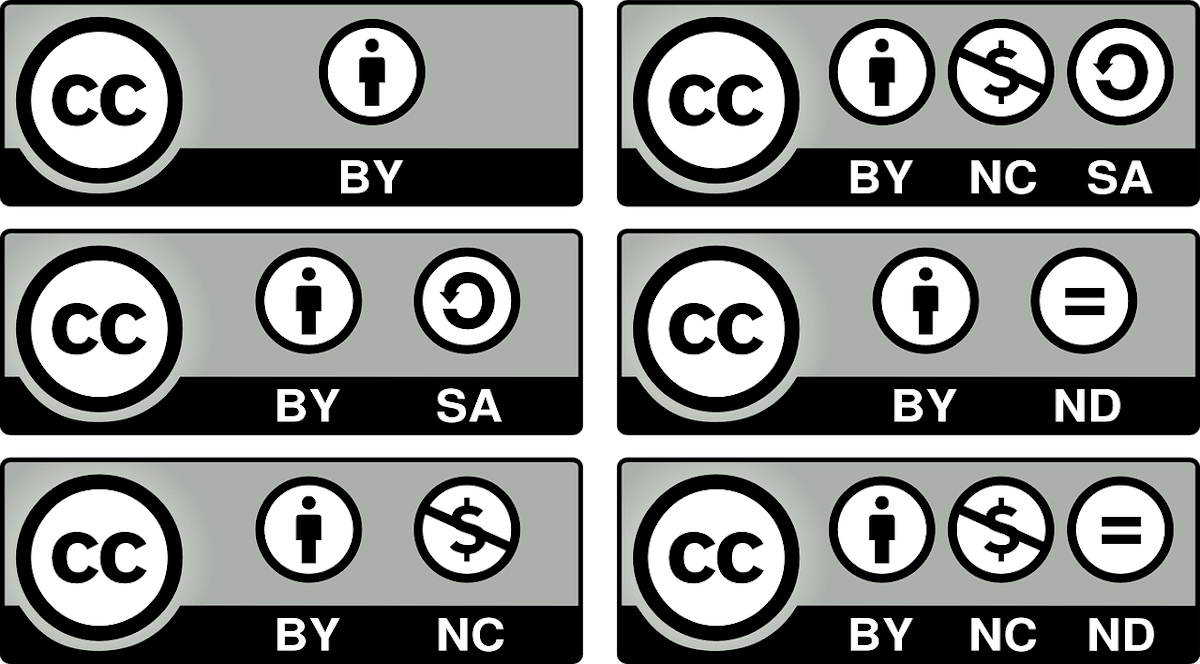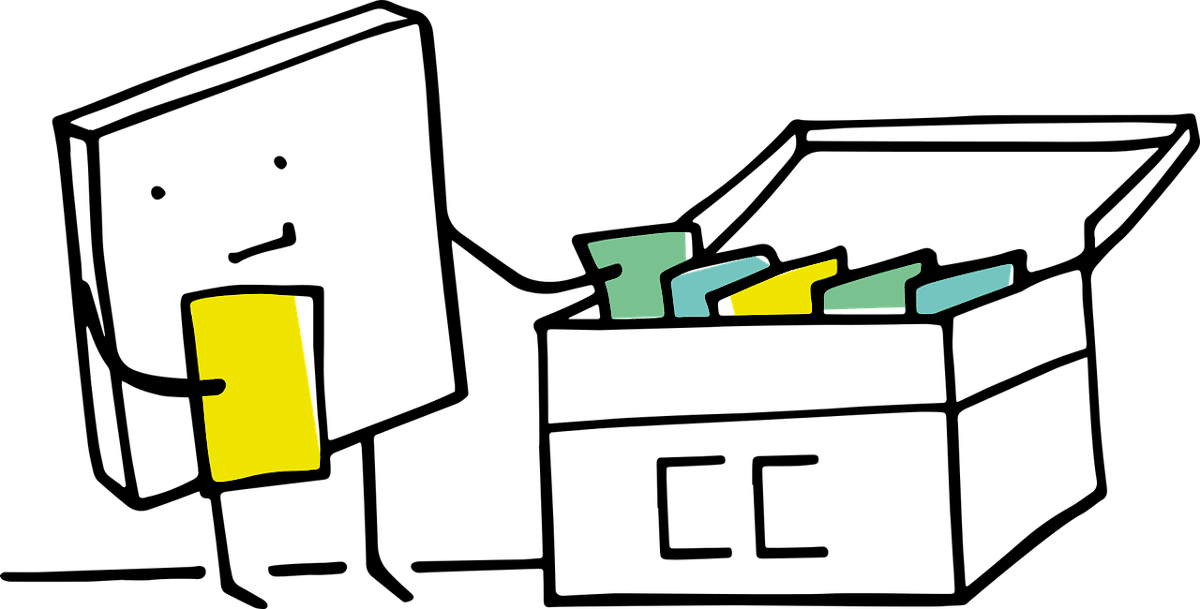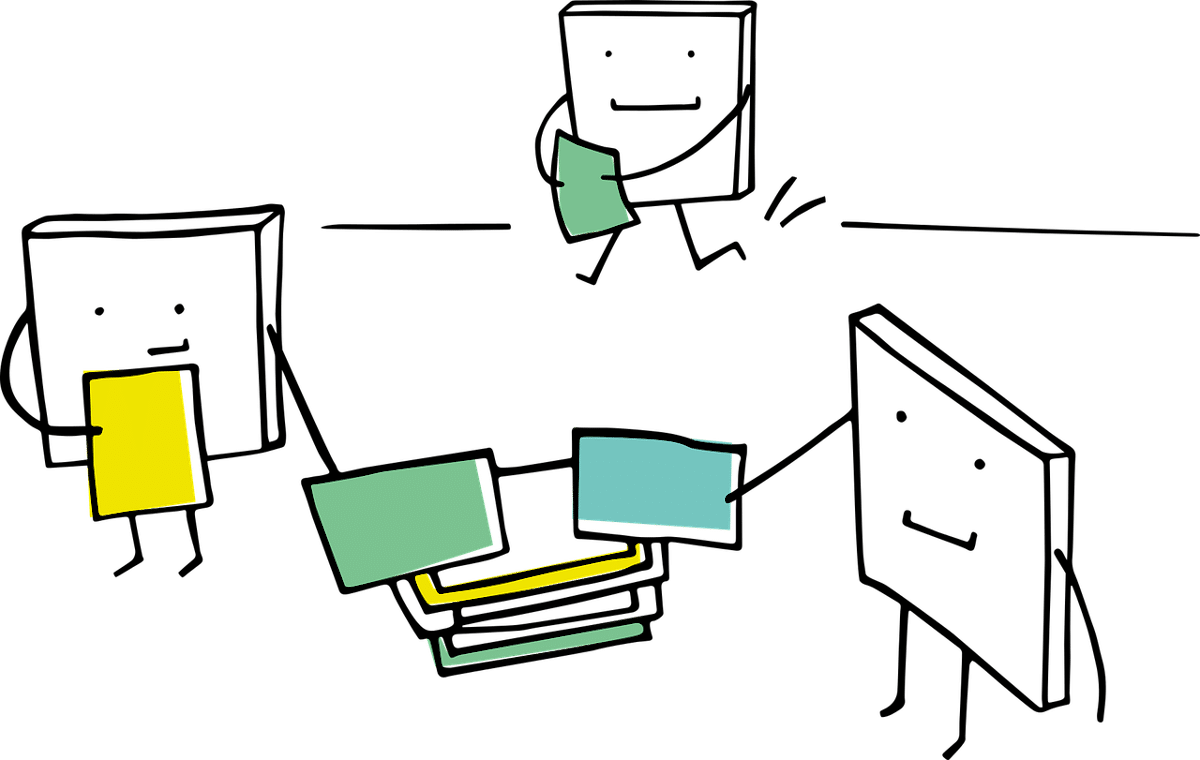
The Internet was an event that made a difference. Authors, whether they were designers, writers, illustrators ... could show everyone what they were capable of. And they were all praised, criticized, etc. But they also robbed them. Until Creative Commons licenses appeared.
These licenses are a fundamental part related to copyright. With them, these rights can be preserved and others do not appropriate the ideas or works of one person (or several). But, What are creative commons licenses? How do they work? What types are there? Take a look at what we have prepared to make everything clearer.
What are Creative Commons licenses
Creative Commons licenses, or as they are often known, CC, is a product that is part of a non-profit organization. What it does is offer a license model, or copyright license, in such a way as to protect other people's work. Thus, you can share, distribute or even allow your work to be reused, be it just for personal or commercial use.
In fact, you may have come across these licenses. For example, when in certain photos, books, images, texts, etc. It puts you "all rights reserved" or "some rights reserved."
Creative Commons licenses and dcopyright
One mistake you can make is to think that Creative Commons Licenses replace copyrights, or that if you have these licenses you no longer need to register your work anywhere else. It is not true.
In fact, it's a way that the authors decide how they are going to share their work, but do not give ownership of it. In other words, if for example you have written a book and publish it on your blog under a Creative Commons license, that does not mean that it is yours, even if it is. It is necessary that you register in the intellectual property so that there is a document that proves that it is really yours.
How licenses work

Creative Commons licenses work very easily. You have to see them as the tool so that authors can control the use that others make of their work, since they are governed by aspects that are allowed to be done with them and others that are not.
These licenses are based on intellectual property. That is, they are two different things but one (the license) is supported by the other (intellectual property) since, if you do not have the property rights, you cannot have a license over them.
Creative Commons licenses are obtained free of charge. In fact, it is a simple and easy process. What you should do first is choose a license based on the different types that there are (and which we will see below). Afterwards, you will be asked to fill in the data (author of the work, title of the work and url where it has been published) so that it can offer a code.
Types of Creative Commons licenses

On the Creative Commons website you can see that there are different types of licenses. Knowing them is very important because you will know for sure what you need according to your situation.
These are the following:
Recognition license
This license is the "strongest", so to speak. It will allow you others distribute, retouch, adapt and reuse their work, even commercially, as long as they give credit to the original. It is the one that allows maximum dissemination of what is protected with this seal because everyone has to know the mention of the person who made the original.
Recognition License - Share Alike
This is a license for reuse, adapt and build a work based on this creation, even for commercial purposes, as long as there is a credit to the original. In this case, the works that are based on that, will also carry the same license (for example, it is the one used in Wikipedia).
Attribution -No derivative work
As its name suggests, we are talking about a Creative Commons license in which it is not allowed to reuse the work for any use, personal or commercial, but you can share this with others as long as you give credit to the author of it.
Recognition - Non-commercial
It allows you to do the same as the recognition license, except in the commercial field, since they cannot be used for that purpose. In other words, on a personal level you could use it, but not make a profit (profit on a commercial level) with it.
Acknowledgment - Non-commercial- Share Alike
In this case we are with something similar to the previous one. And it is allowed to reuse, adapt and build a work based on that original but not for commercial purposes. You must also give credit to the original.
Attribution -Non-commercial- No derivative work
It is the Creative Commons license most restrictive of all because it does not allow you to reuse, adapt, modify, etc., just download the work and share it. And all this without a commercial character, but more personal.
What the license icons mean
If you have tried to get the Creative Commons license, or want to try, you should know that, once you put all the data they will give you a code and a banner so you can link in your creations. That banner has your license, but expressed in three different ways:
- With the Commons Deed, which is actually a summary of the text with the icons.
- With the Legal Code, which is a code that will refer to the license or the legal text.
- The Digital Code, that is, the digital code that any machine will read and that will make search engines identify your work and know what conditions you have declared for it (and thus respect them).
Where to use Creative Commons licenses

These licenses are a good resource for a lot of professionals, since they allow them to control their work on the Internet. But what people can use them? Well, for example:
- Those who have a website or blog and write on it. That way, all the texts will have a control.
- Those who write books and can be distributed through the Internet.
- Those who take photographs, designs, illustrations ... and any other visual material (videos, images, audios) that may be capable of being shared by other people (with or without the author's permission).